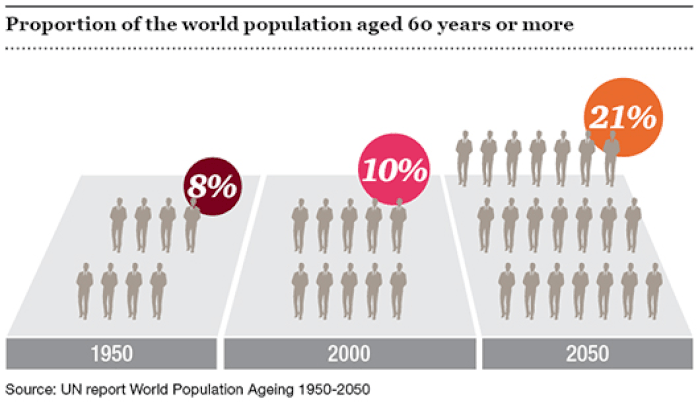People 60 years and older make up 12 3 percent of the global population

People 60 years and older make up 12.3 percent of the global population.

The world’s population is a dynamic and ever-changing entity, influenced by various factors such as birth rates, mortality rates, and migration patterns. Every age group holds significance, contributing to the overall social and economic landscape. In this article, we focus on an interesting fact: people aged 60 years and older make up 12.3 percent of the global population.
According to a report by Reuters 1^, this demographic is rapidly expanding, presenting both opportunities and challenges for societies worldwide. Let’s delve into some key points that shed light on the implications of this fact.
1. Aging Population and Increased Life Expectancy
As advancements in healthcare and living standards continue to improve, people are living longer than ever before. Improved medical treatments, better nutrition, and enhanced living conditions have contributed to increased life expectancy. Consequently, individuals aged 60 and older now account for a significant portion of the global population.
2. Social and Economic Impacts
The aging population has both social and economic implications for countries across the globe. As people age, they often require additional healthcare services and support, leading to increased pressure on healthcare systems. Moreover, the older population can also impact labor markets and pension systems. It becomes crucial for governments to develop policies that address these challenges and ensure the well-being of their elderly citizens.

3. Opportunities for Growth and Innovation
While an aging population presents challenges, it also offers opportunities for growth and innovation. As people aged 60 and older continue to contribute actively to society, businesses can invest in products and services that cater to their specific needs. This can create new markets and drive economic growth.
4. Implications for Healthcare
The increase in the older population necessitates a greater focus on geriatric healthcare. Healthcare systems need to adapt to the changing dynamics and ensure that adequate services are available to address the specific needs of the elderly. This includes preventative care, specialized treatments, and comprehensive support systems.
5. Social Integration and Inclusion
Ensuring social integration and inclusion of older adults is crucial for maintaining their overall well-being. Elderly individuals should have access to social activities, community engagement, and support networks that help them lead fulfilling lives. This requires communities and societies to foster an environment that values and embraces all age groups.
In conclusion, the fact that people aged 60 and older make up 12.3 percent of the global population reveals the ongoing demographic shift occurring worldwide. Governments, businesses, and communities must adapt their policies and strategies to accommodate the specific needs of this growing population. By doing so, we can create a society that promotes the well-being and inclusion of individuals of all age groups.
Related Posts
Quick Links
Legal Stuff

